Breast Reconstruction in Johannesburg
Search and Compare the Best Clinics and Doctors at the Lowest Prices for Breast Reconstruction in Johannesburg
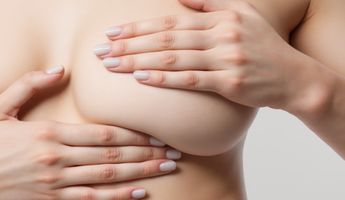
Find the best clinics for Breast Reconstruction in Johannesburg
With Medijump you can browse 2 facilities offering Breast Reconstruction procedures in Johannesburg. The cheapest price available is $8,781 in Johannesburg. And for the cheapest price globally, prices start from $477 in India.
Breast Reconstruction in South Africa
Price: $ 8,781
Breast Reconstruction in Johannesburg
Price: $ 8,781
India offers the best prices Worldwide
Price: $ 477
From 72 verified reviews
Charlotte Sorour, 13 March 2020
Parking is a huge problem.On a positive note it is a great hospital with great specialists and doctor's hence why it is so busy. Well worth driving around a bit looking for parking knowing your loved one's are in good hands. My mind at ease. My husband is well looked after. Thank you Linksfield staff :)
From 38 verified reviews
Nompumelelo Madliwa, 19 April 2020
I had such a wonderful experience there with Dr Thomas, I had a skin drafting done it was such a smooth process I am healing very well and had a great stay there, Thank you so much
- Home
- South Africa
- Johannesburg
Compare Before & After Photos of _procedure_photos.phpBreast Reconstruction
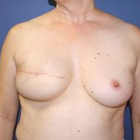
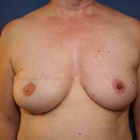
Front view
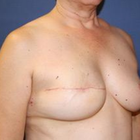
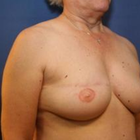
Half-side view
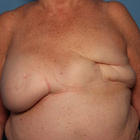
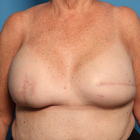
Front view
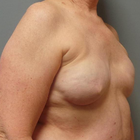
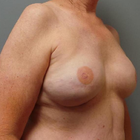
Half-side view
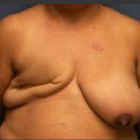
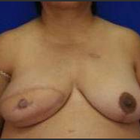
Front view
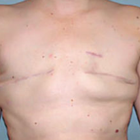
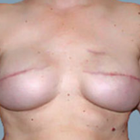
Front view
WHY US?
At Medijump, we're making medical easy. You can search, compare, discuss, and book your medical all in one place. We open the door to the best medical providers worldwide, saving you time and energy along the way, and it's all for FREE, no hidden fees, and no price markups guaranteed. So what are you waiting for?

Free

Best Price

Widest Selection

Risk-Free
What you need to know about Breast Reconstruction in Johannesburg
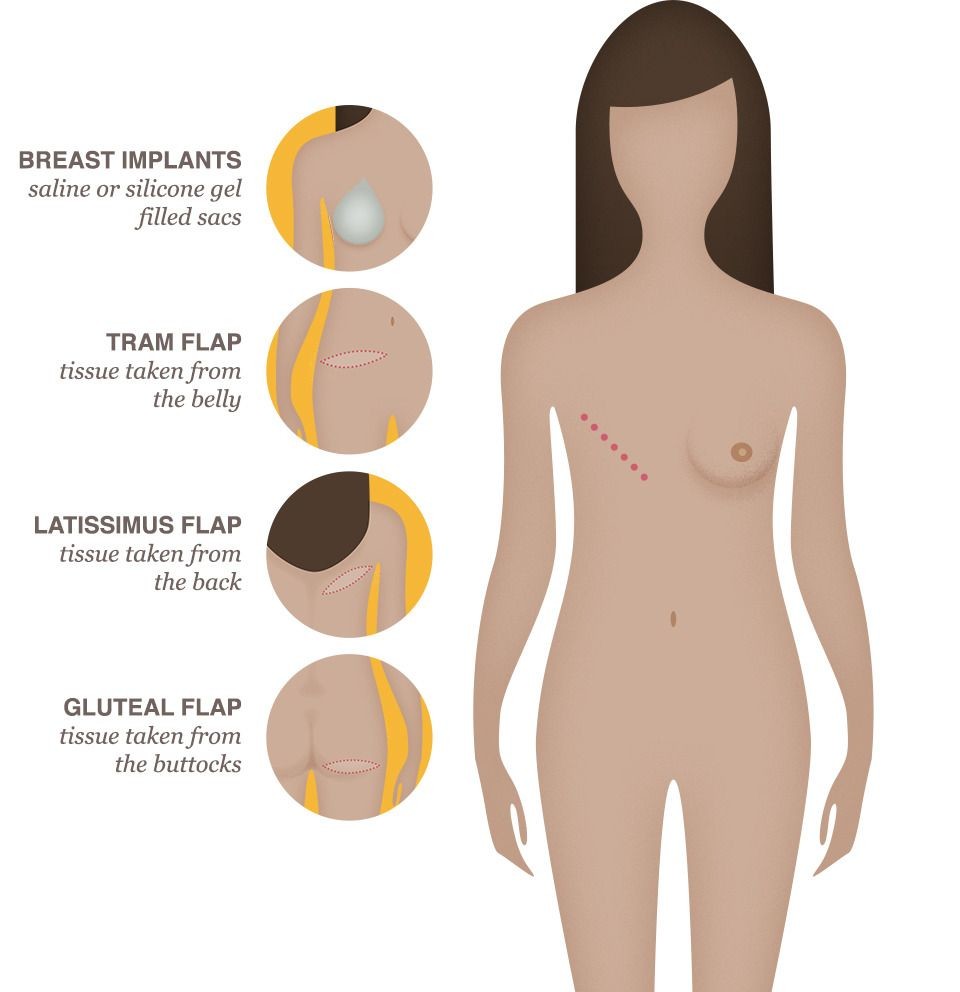
Breast reconstruction is a significant surgery undertaken to rejuvenate the physical form of a woman's chest after losing one or both breasts to cancer or another disease. In Johannesburg, medical centres are well-equipped with top-tier talent in plastic surgery to facilitate this intricate procedure. Every woman's journey is different, and her treatment plan is personalized, considering her unique circumstances and needs.
It's heartening to know that breast cancer treatments like chemotherapy or radiation therapy aren't impeded by reconstruction. Moreover, this surgery doesn't spike the risk of cancer coming back. Undeniably, breast reconstruction is a major surgery with inherent risks, including chances of infection, complications with wound healing, and potential dilemmas related to implants.
What is the cost of Breast Reconstruction in Johannesburg?
Undergoing surgery like Breast Reconstruction brings along a financial commitment. The expense varies extensively, depending on many factors like the complexity of the procedure, the medical professional performing the surgery, the hospital's facility, and the region, amongst others. Generally, the cost might range between $15,000 to $50,000, including multiple surgeries or intricate techniques within this estimate.
Thankfully, in many cases, insurance plans cover such surgical procedures, especially given mandates like the Women's Health and Cancer Rights Act of 1998 in the U.S. Still, out-of-pocket expenses associated with co-payment or deductibles can add up. It's recommended to navigate these aspects with your insurance provider and your chosen healthcare facility in Johannesburg.
What does a Breast Reconstruction Procedure Involve?
Breast reconstruction generally happens in stages, starting with the most complex first, which may either occur at the same time as the mastectomy or later, based on the individual’s specific health conditions or treatment plan.
Two main techniques are employed in breast reconstruction. One is the use of an implant, saline, or silicone to recreate the breast shape. Two, autologous or flap reconstruction where tissue from the patient’s body like the abdomen or thigh is relocated to recreate the breast shape. The method selected is dependent on individual factors like the patient’s health, personal choice, cancer type, and stage.
After the primary surgery and post an adequate healing period, the surgeon performs a second procedure to recreate the nipple and areola. Later, to give it a natural look, the nipple-areola complex is tattooed. Remember that although it is a common procedure, complications might arise involving reaction to anaesthesia, bleeding, infection, poor healing or the need for further interventions.
How Long Should I Stay in Johannesburg for a Breast Reconstruction Procedure?
Post-breast reconstruction surgery, patients typically stay in the hospital for two to five days. However, if the reconstruction was done immediately after the mastectomy, the stay could extend from three to six days.
Overall, a patient should expect to remain in Johannesburg for approximately two weeks post-surgery. This allows enough time for necessary follow-ups and to address any complications, if they arise. As with any major surgical procedure, do not hasten the healing process.
What's the Recovery Time for Breast Reconstruction Procedures in Johannesburg?
The recovery timeframe for breast reconstruction procedures in Johannesburg varies from patient to patient. Generally, for implant-based procedures, patients may take about four to six weeks to recuperate before they return to normal routines. For more complex autologous techniques, particularly those using abdominal tissue, patients might require six to eight weeks for recovery.
Recovering patients need to temper their activities during this period. Avoid lifting heavy objects and defer strenuous exercise until your physician gives a clear signal. Medical assistance should be promptly sought if any discomforting symptoms like chronic pain, redness or swelling surface.
What's the Success Rate of Breast Reconstruction Procedures in Johannesburg?
Medical success cannot just be measured in terms of complication-free postoperative progress or longevity of implants used in breast reconstruction. Patient satisfaction with their surgery, their psychological well-being following the operation, their perception of body image, and their quality of life post-surgery are equally important factors to consider. Studies indicate that between 85% to 90% of women who have undergone breast reconstruction are satisfied with the long-term results.
In Johannesburg, dedicated hospitals and healthcare facilities strive to offer high-quality treatment, ensuring the best possible surgical outcomes using progressive technology and experienced professionals. Still, everyone's response to surgery varies, and outcomes depend on factors such as overall health, age, body type, and compliance with surgical advice.
Are there Alternatives to Breast Reconstruction Procedures in Johannesburg?
Indeed, there are alternatives to breast reconstruction in Johannesburg. The journey of every woman is unique and how she chooses to deal with the loss of a breast, or both, is a highly personal decision. Alternatives include:
- Breast Prostheses or Forms: They are silicone forms that imitate the appearance and feel of natural breast tissue. They come in diverse sizes, shapes and colours to closely match the woman's skin tone.
- Flat Closure: In this method, the surgeons sew up the chest wound smoothly, without constructing a breast mound. This option appeals to women who choose not to have more surgeries or body implants.
- Opting not to undergo reconstruction at all, also termed as "going flat: This method exhibits the woman's choice to live comfortably with her new body shape without artificial substitutes or further surgeries. It is a fully personal decision deserving respect and support.
Each of these options has pros and cons, and the choice depends on the woman’s personal preference, health status, lifestyle, and perception of her body. Regardless of the choice, it’s important to regularly monitor breast health and engage in practices that promote overall wellness.
What Should You Expect Before and After the Breast Reconstruction Procedure?
Before the surgery, comprehensive discussions with the surgeon will take place to understand treatment objectives, outcomes, and possible complications. Preoperative tests, lifestyle modifications, and nutritional advice may form a part of the preparatory process.
Postoperative care is equally important: discomfort, swelling, and bruising are normal and subside over time. Pain management strategies will be provided to help you manage discomfort effectively. Your surgeon will provide personalised guidance on caring for your surgical site, usage of medications, and physical activities.
What sort of Aftercare is Required for Breast Reconstruction Procedures in Johannesburg?
The following points should be considered post-operation:
- Follow the instructions given by your doctor and take your medicines as and when prescribed.
- Consult a nutritionist for a diet plan. A healthy diet helps you recover faster.
- Do not wear a padded or underwire bra until allowed by your doctor.
- Use surgical bras in the early few days after the surgery.
- Avoid excessive unnecessary movement of your breasts.
- Do not lift heavy objects and children - it could stretch on your stitches.
- Change your bandage whenever it gets dirty. Germs can cause infection.
- Do not take a bath when the bandages are still intact. A wet bandage can also be the cause of infection.
- Abstain from sexual activity for at least 6 weeks.
- Take rest - give yourself time to recover.
How Do I Prevent Cancer from Recurring?
Preventing cancer recurrence largely revolves around a balanced, healthy lifestyle coupled with regular medical check-ups. Regular exercise, maintaining a healthy weight, and eating nutritiously can contribute to cancer prevention. Smoke cessation and limiting exposure to secondhand smoke are crucial for both prevention and postoperative recovery.
Regular breast self-examinations, as well as mammograms and follow-up visits, are critical for early detection of any recurrence. Stress management techniques like yoga, meditation, and spending time in nature can also play an essential role in overall health.
Your medical team in Johannesburg is there to support you, offering advice tailored to your individual health status and medical history. Remember, proactive health checks are key to maintaining overall health and preventing the recurrence of diseases like cancer.
What is the ideal time to have Breast Reconstruction surgery after a Mastectomy in Johannesburg?
The decision regarding when to have Breast Reconstruction following a Mastectomy in Johannesburg is largely based on the individual's health status, treatment plan, personal preferences, and discussions with the oncology team. Breast reconstruction can be done at the time of mastectomy (immediate reconstruction) or at a later date (delayed reconstruction). Immediate reconstruction might offer psychological benefits and less overall surgery since both procedures are done together. Yet, if additional treatments such as radiation therapy are required post-mastectomy, opting for delayed reconstruction could be advisable to avoid risks posed by radiation to the new construct.
Remember that deciding on the timing of breast reconstruction is a personal choice and should be made in consultation with your healthcare providers. They can provide specific guidance based on your health condition and treatment plan.
How Will Breast Reconstruction in Johannesburg Impact My Routine Mammograms and Breast Cancer Detection?
Breast reconstruction surgery may impact the way routine breast cancer screenings are conducted. After a mastectomy with or without reconstruction, women usually don't need routine screening mammograms on the treated side since all breast tissue has been removed. However, they would need routine mammograms for the untreated breasts.
If you've had reconstruction using your own body tissue, your surgeon or oncologist will guide you on whether or not you'll require mammograms on the reconstructed breast. Remember, mammograms can still be performed on reconstructed breasts, and self-breast exams should be a regular part of your health routine.
Whilst the information presented here has been accurately sourced and verified by a medical professional for its accuracy, it is still advised to consult with your doctor before pursuing a medical treatment at one of the listed medical providers
No Time?
Tell us what you're looking for and we'll reachout to the top clinics all at once
Enquire Now

Popular Procedures in Johannesburg
Prices Start From $497

Prices Start From $208

Prices Start From $834

Prices Start From $500

Prices Start From $93

Prices Start From $85

Recommended Medical Centers in Johannesburg for Breast Reconstruction

- Interpreter services
- Translation service
- Religious facilities
- Medical records transfer
- Medical travel insurance
- Health insurance coordination
- TV in the room
- Safe in the room
- Phone in the room
- Private rooms for patients available

- Interpreter services
- Translation service
- Religious facilities
- Medical records transfer
- Medical travel insurance
- Health insurance coordination
- TV in the room
- Safe in the room
- Phone in the room
- Private rooms for patients available

- Interpreter services
- Translation service
- Religious facilities
- Medical records transfer
- Medical travel insurance
- Health insurance coordination
- TV in the room
- Safe in the room
- Phone in the room
- Private rooms for patients available

- Interpreter services
- Translation service
- Religious facilities
- Medical records transfer
- Medical travel insurance
- Health insurance coordination
- TV in the room
- Safe in the room
- Phone in the room
- Private rooms for patients available
Breast Reconstruction in and around Johannesburg
About Johannesburg
Johannesburg is the most populous as well as the largest city in South Africa. There is a lot to see and do in Johannesburg. Home to the Apartheid Museum, it is the perfect place for anyone who loves history and wants to learn more about the country’s past. There are also MOAD and MuseuMAfriCA that exhibit the city’s art and history. Other than the museums, the metropolitan city has a number of other things to do, such as enjoying Gold Reef City, shopping in its many markets, and visiting The Cradle of Human Kind.
Today, people have found a new reason to visit Johannesburg: medical tourism. Although it is not as widely known as other medical tourism destinations in other parts of the world, the city has seen a steady rise in medical tourists. The urban city features public and private medical centers with the highest standards, well-trained medical practitioners, and cutting-edge technology. Most of the medical centers have English speaking doctors, nurses, and staff, so there is no language barrier for foreign medical tourists. Plastic surgery, particularly tummy tuck, is one of the more popular procedures since it is much cheaper here than in Western countries.
Popular Areas in Johannesburg
While Johannesburg is not a popular tourist destination, there are a number of things to see and do in the city. The city is mostly known as Nelson Mandela’s home and has an array of astonishing museums. Those who love history and want to learn about the country’s struggle will enjoy the Apartheid Museum. It exhibits the story of apartheid through photographs, film footage, clippings, newspaper, and artifacts. Mandela House in Soweto Street is also worth a visit. It was once Nelson Mandela’s home. The museum showcases photographs, paintings, as well as awards and recognitions earned by Nelson Mandela.
One of the most popular places is the Lion Park. The safari park offers an amazing chance to watch lions and several other animals up close. There are also other activities such as animal interactions and hand-feeding a few animals, such as ostriches and giraffes. Other than the Lion Park, Pilanesberg National Park is famous among wildlife enthusiast. The national park is filled with opulent ecosystem and wildlife. Tourists can experience a safari and spot lions, rhinos, elephants, leopards, zebras, and over 300 bird species in their natural habitat.
Johannesburg is popular for its art and you must visit the Maboneng Precinct where you will find art-studios and shops selling art pieces. Wits Art Museum is another great place to admire African art. If you want to know more about the culture, Lesedi Cultural Village is the best place to go. Here, tourists can learn more about traditional South African culture and a chance to encounter people of Zulu, Pedi, Ndebele, Xhosa, and Basotho origin. Other places including SAB World of Beer, Gold Reef City, Holly Hill, Market Theatre, Constitution Hill, and Mary Fitzgerald Square are also a must-visit.
Weather and Climate in Johannesburg
Johannesburg experiences a subtropical highland climate. The summer, which runs from October to April, is characterized by hot days with thundershowers in the afternoon and cool evenings. The temperature is mostly mild during the summer. January is one of the hottest months, with an average maximum daytime temperature of 25.6 °C. The summer has an extreme UV index, sometimes reaching as high as 14-16. Therefore, tourists must wear sun-protective clothing and apply sunscreen during the day to avoid sunburn.
In the winter, the city enjoys sunny days and cold nights. This season is dry, and the average maximum temperature is around 16 °C. In June and July, the temperature can drop to 4.1 °C and occasionally drops below freezing at night. The freezing temperature causes frost, but snow is rare. It is advisable to bring warm clothing during this season.
Getting Around in Johannesburg
International visitors usually arrive at O. R. Tambo International Airport, also known as Johannesburg International Airport. It is Africa’s busiest airport and the primary airport that serves domestic and international travel. The airport connects South Africa with various cities all over the world, including London, Abu Dhabi, Atlanta, Singapore, and Sydney. It is the hub for South Africa’s largest domestic and international airlines, South African Airways. Budget airlines such as FlySafair, Mango, and Kalula operate flights from this airport for an inexpensive travel option.
Johannesburg has a vast public transport system. The Gautrain rapid-rail is safe and fairly easy to navigate. The rail also links the city center with O. R. Tambo International Airport. For efficient transport, tourists can opt for the Rea Vaya bus service that has a circular route through the city and is useful to explore the City Center at a reasonable cost. Many locals will use the minibus taxi network, but it can be pretty confusing for foreign tourists. Passengers need to know a route to their destination, hail the minibus taxi from the street, and once they have arrived at their desired destination, they need to make a hand signal to stop the minibus.
Metered taxis are available but can be quite expensive. The taxis are mostly found outside hotels. Since there are only a few places to hail a taxi in the street, the best way to hail a taxi is by phone. Be careful because many taxis do not use meters so tourists would need to negotiate the price before getting in. The most reliable metered taxis are Orange Cabs, Quick Cab, and Zebra Cabs. Uber is also available for safer, quicker, and more affordable transport.
Tourist Visas in Johannesburg
All visitors who wish to enter South Africa must hold a passport valid for at least 30 days after the expiration of their intended visit and must have at least two unused pages. Passport holders of more than 60 countries can enter and stay for up to 90 days in the country without a visa. Other nationals not listed in the visa exemption agreement must obtain a visa to the nearest South Africa embassy or consulate. The South Africa Immigration Department also offers Medical Treatment Visa for medical tourists.
Additional Information
- Local Currency: The local currency is the South African Rand (ZAR). 1 USD is equivalent to 14 ZAR.
- Money & Payments: ATMs are available at every commercial center. Most hotels, restaurants, and shops accept credit cards (especially MasterCard and Visa). However, be sure to always carry some cash since there are several cases of credit card fraud. Tourists must tip car guards, but should not tip minibus taxi drivers. For bars and restaurants, 10% to 20% of the bill is acceptable.
- Local Language: Most people will speak more than two languages, including Nguni, Sotho, English, Afrikaans, and Tshivenda.
- Local Culture and Religion: More than 50% of the population follows Christianity and more than 20% are not affiliated with any religion. There are small groups of Muslim, Jewish, and Hindus.
- Public Holidays: There are around 12 official public holidays in the city such as Good Friday, Freedom Day, Heritage Day, and Christmas Day.
Popular Searches
- Plastic Surgery in Thailand
- Dental Implants in Thailand
- Hair Transplant in Thailand
- Breast Augmentation Thailand
- Gastric Sleeve in Thailand
- Gender Reassignment Surgery in Thailand
- Laser Hair Removal in Bangkok
- Botox in Bangkok
- Dermatology in Bangkok
- Breast Augmentation in Bangkok
- Coolsculpting in Bangkok
- Veneers in Turkey
- Hair Transplant in Turkey
- Rhinoplasty in Turkey
- Stem Cell Therapy in Mexico
- Rhinoplasty in Mexico
- Liposuction in Mexico
- Coolsculpting in Tijuana
- Rhinoplasty in Korea
- Scar Removal in Korea
- Gastric Sleeve in Turkey
- Bone Marrow Transplant in India
- Invisalign in Malaysia
- Plastic Surgery in the Dominican Republic
- Tummy Tuck in the Dominican Republic
- Plastic and Cosmetic Surgery in Poland
- Rhinoplasty in Poland
- Hair Implant in Poland
- Dental Implants in Poland
- IVF in Turkey

